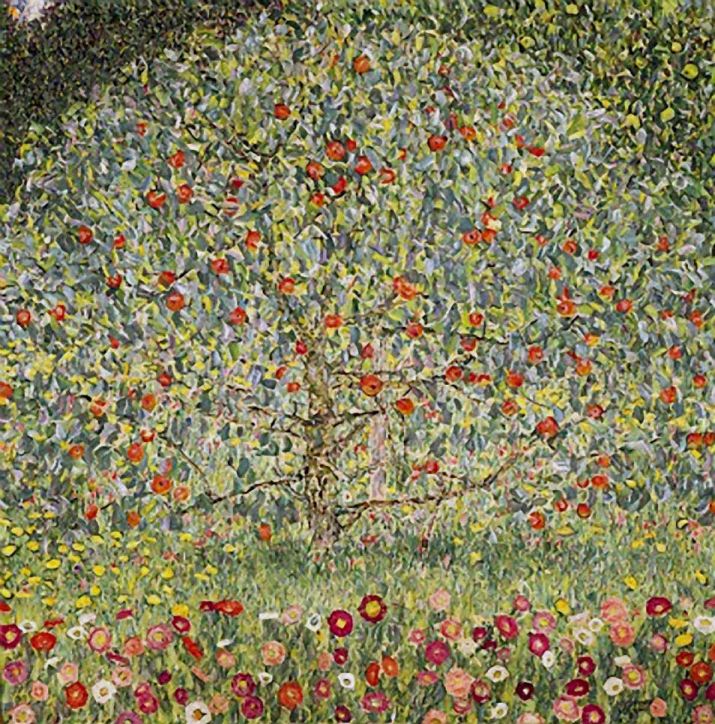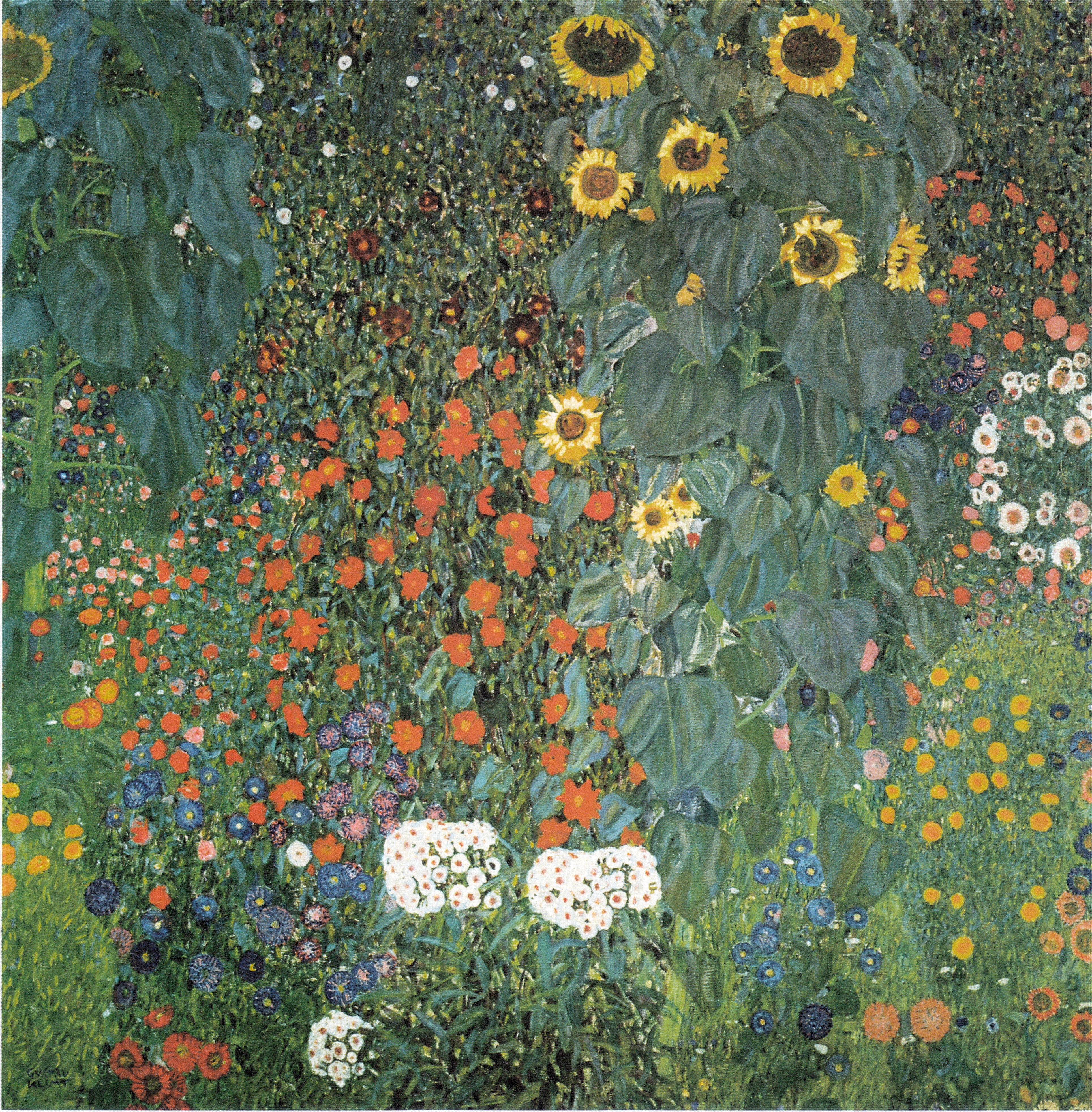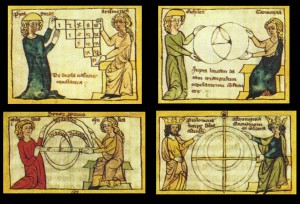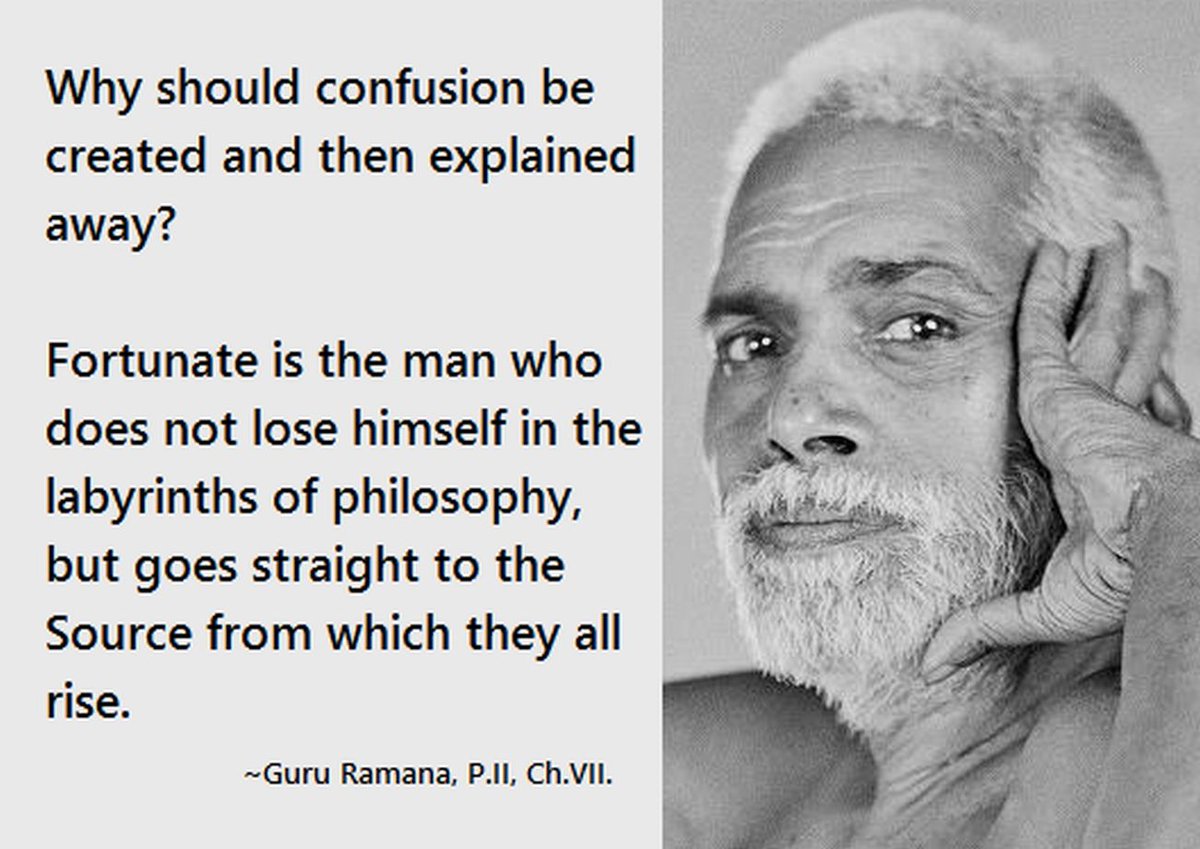Links zum Thema Philosophie / Philosophy
Veranstaltungen
Online course
- Free 7 weeks long online course: Introduction to Philosophy, presented by coursera.org, The University of Edinburgh, tutors Dave Ward, Duncan Pritchard, Michela Massimi, Suilin Lavelle, Matthew Chrisman, Allan Hazlett, Alasdair Richmond, starting January 2013
↑
Literatur
- Immanuel Kant (1724-1804) deutscher Philosoph der Aufklärung, Kritik der reinen Vernunft, 1783
- Klassiker Wilhelm Windelband, Lehrbuch der Geschichte der Philosophie, Original erschienen 1891
Ergänzung von Heinz Heimsoeth bis zur Mitte des 20. Jahrhundert, antiquarisch erhältlich
- Aldous Huxley (1894-1963) britisch-US-amerikanischer Kulturkritiker, Humanist, Pazifist, Visionär, parapsychologisch-philo-
sophischer Schriftsteller, Die ewige Philosophie. Philosophia perennis, Original erschienen 1945, Nietsch, überarbeitete Neuauflage 15. September 2008
Nach Aldous Huxley ist die Philosophia perennis die "konvergierende religiöse Weisheit aller Kulturen".
- Hans Joachim Störig (1915-2012) deutscher Lexikograph, Sachbuchautor, Kleine Weltgeschichte der Philosophie, Kohlhammer, Stuttgart 1950, 1954, Fischer Taschenbuch 9. Auflage 1. September 1999
- Klassiker Johannes Hirschberger (1900-1990) deutscher katholischer Theologe, Philologe, Philosoph, Philosophiehistoriker, Autor, Geschichte der Philosophie. Band 1: "Altertum und Mittelalter"; Band 2: "Neuzeit und Gegenwart", Gebundenes Buch, 1957; Geschichte der Philosophie. Altertum und Mittelalter, Neuzeit und Gegenwart, KOMET, Gebundenes Buch, Neuauflage Oktober 2007
- Peter Sloterdijk (*1947) deutscher Kulturwissenschaftler, Professor für Philosophie, Universität Karlsruhe, Fernsehmoderator, Essayist, Kritik der zynischen Vernunft, 2 Bände, Suhrkamp Verlag, 17. Auflage Januar 1983
- Klassiker Paul Watzlawick (1921-2007) österreichisch-US-amerikanischer Kommunikationswissenschaftler, Psychotherapeut, Psychoanalytiker, Soziologe, Philosoph, Autor, Anleitung zum Unglücklichsein, Piper Verlag, München, Erstausgabe 1983, 1988, 15. Auflage November 2009
- Paul Karl Feyerabend (1924-1994) österreichischer Professor der Philosophie, Universität von Kalifornien in Berkeley (1958-1989), Wissenschaftstheoretiker, Die Torheit der Philosophen. Dialoge über die Erkenntnis, Fischer Taschenbuch Verlag, Frankfurt am Main, 1992, April 2001
- Jostein Gaarder (*1952) norwegischer Intellektueller, Schriftsteller, Sofies Welt. Roman über die Geschichte der Philosophie [1991], Carl Hanser Verlag, München und Wien, 1993
Geeignet für Jugendliche und Philosophie-Einsteiger: Einführung in die Gedankenwelt der griechischen Philosophen Parmenides, Demokrit, Sokrates, Platon, Aristoteles, Diogenes, Epikur, Plotin, der Denker des Mittelalters Augustinus und Thomas von Aquin, der Aufklärungsphilosophen Descartes und Spinoza, der Vertreter der Aufklärung John Locke, David Hume, George Berkeley und Immanuel Kant. Hinzu kommen Georg
Wilhelm Friedrich Hegel, Søren Kierkegaard, Karl Marx, Charles Darwin, Sigmund Freud und der Existentialist Jean-Paul Sartre.
Rahmenhandlung: Das 15-jährige Mädchen Sofie Amundsen aus Oslo bekommt Briefe von dem Philosophielehrer Alberto Knox.
Bis 2011 wurde "Sofies Welt" in 59 Sprachen übersetzt und weltweit über 40 Millionen Mal verkauft.
- Malte Hossenfelder, Antike Glückslehren, Kröner Verlag, 1996
- Rüdiger Safranski (*1945) deutscher Philosoph, Das Böse. Oder Das Drama der Freiheit, Hanser, München, 1997, Fischer Taschenbuch, Frankfurt am Main, 1. Auflage 1999
Führung durch die Philosophiegeschichte
Zitate von antiken Philosophen
Anekdoten
- Alan Watts (1915-1973) englischer Philosoph, Redner, Schriftsteller, Das Tao der Philosophie, Insel Verlag, 2. Auflage
27. September 2004
- Dr. Richard David Precht (*1964) deutscher Philosoph, Dozent, Fernsehmoderator, Publizist, Wer bin ich. Und wenn ja, wieviele? Eine philosophische Reise, Goldmann Verlag, 24. Auflage September 2007
- Peter Sloterdijk (*1947) deutscher Kulturwissenschaftler, Professor für Philosophie, Universität Karlsruhe, Fernsehmoderator, Essayist, Du mußt dein Leben ändern. Über Anthropotechnik, Suhrkamp, Frankfurt am Main, 1. Auflage 2009
- Rudi Berner, deutscher Autor, Auf ein Wort – Zu den Gipfeln der Philosophie, Verlag Art of Arts, überarbeitete Neuausgabe 20. Mai 2010
- Dr. phil. Claudia Simone Dorchain, M.A. (*1976) deutsche Philosophin, Therapeutin, Autorin, Zeichen am Wege, Re Di
Roma-Verlag, 8. März 2010
- Dr. Martin Bunte, Erkenntnis und Funktion. Zur Vollständigkeit der Urteilstafel und Einheit des kantischen Systems, Kantstudien-Ergänzungshefte, Band 189, De Gruyter, Erstauflage 12. September 2016
↑
Literature (engl.)
Wikipedia entry Perennial philosophy
- Peter Sloterdijk (*1947) German cultural scientist, professor of philosophy, Universität Karlsruhe, TV host, essayist, Critique of Cynical Reason, two volumes, [1983] University of Minnesota Press, 1987, 1989
- A.C. Grayling (*1949) British philosopher, author, The Meaning of Things. Applying Philosophy to Life, "Introduction", S. 7, Weidenfeld & Nicolson, 9. August 2001
↑
Externe Weblinks
- Wikipedia-Einträge Essentialismus, Existentialismus, Ideenlehre Platons Konzept: Ideen sind eigenständige Entitäten., Meta-
philosophie, Noologie phil. Lehre; Organisation des autonomen Geistes, Philosophia perennis et universalis immerwährende / ewige Philosophie im Sinne der großen spirituellen und mystischen Traditionen der Menschheitsgeschichte, Philosophie, Zenons Paradoxien der Vielheit (5. Jahrhundert v. Chr.)
Philosophen: Friedrich Heinrich Jacobi
- Philolex-Einträge Philosophie, Essay von Peter Möller, Einführung in die Philosophie, Berlin, März 2012
↑
Weblinks zum Thema Philosophie – Quora
Beiträge verfasst von Elfriede Ammann, präsentiert auf der kalifornischen Frage-und-Antwort Webseite Quora DE
- Beitrag Wer ist euer Lieblingsphilosoph?, Referenz zu Sokrates, 325 Aufrufe · 8 Likes, 10. Dezember 2018
- Beitrag Was ist das interessanteste, das Sokrates behauptet hat?, 138 Aufrufe · 2 Likes, 27. Januar 2019
- Übersetzter Beitrag von Awdhesh Singh Was hat Sokrates damit gemeint, dass das ungeprüfte Leben nicht lebenswert ist?
Wie untersucht man sein Leben?, 354 Aufrufe · 2 Likes, 13. März 2019
- Übersetzter Beitrag von Barry McGuinness Manche kritisieren das Fach Philosophie, da es womöglich die Weiterentwicklung
der Wissenschaft verhindere. Handelt es sich hierbei um ein gewichtiges Missverständnis?, 110 Aufrufe · 1 Like, 8. April 2019
- Beitrag Wie wahr ist der Spruch von Sokrates: "Ich weiß, dass ich nichts weiß"?, 626 Aufrufe · 2 Likes, 24. Juni 2019
- Beitrag Wie krank war Friedrich Nietzsche?, 6.8k Aufrufe · 34 Likes, 30. Juli 2019
- Beitrag Wer war Sokrates?, 118 Aufrufe · 1 Like, 15. September 2019
- Beitrag Was ist Wahrheit?, 344 Aufrufe · 9 Likes, 1. November 2019
- Beitrag Was heißt Naturzustand von Thomas Hobbes?, 120 Aufrufe · 3 Likes, 13. November 2019
- Beitrag Was ist Deiner Meinung nach die beste und klarste Geschichte der Philosophie?, Referenz zu Jostein Gaarder,
"Sophies Welt", 105 Aufrufe · 5 Likes, 28. Dezember 2019
↑
External web links (engl.)
- Wikipedia entries Allegory of the cave, Essentialism, Existentialism, List of online encyclopedias, Metaphilosophy, The Perennial Philosophy, Philosophy, Plato, The Perennial Philosophy, 1945, Stanford Encyclopedia of Philosophy, Zeno's paradoxes (5th century BC)
- Wikipedia on personalities Philosophy of Søren Kierkegaard
Thales, Anaximander, Pythagoras, Heraclitus, Parmenides and Zeno, Empedocles, Anaxagoras, Leucippus and Democritus
- Blog article by Morten Tolboll, Danish globetrotter, philosopher, blogger, Philosophical Counseling as an Alternative to Psychotherapy, presented by the website mortentolboll.weebly.com, ~2015
- Essay Ideas were not enough. Locke, Spinoza and Voltaire were all brilliant, but religious freedom in Europe was driven by statecraft not philosophy, presented by the philosophical and cultural online magazine Aeon, Mark Koyama, Ph.D.,
US American associate professor of economics, George Mason University, edited by Sam Haselby, 28. August 2017
- Narrated article 10 Women of Philosophy, and Why You Should Know Them, presented by the US American web portal Big Think, 8:22 minutes duration, Scotty Hendricks, 26 July 2017
2. Hypatia of Alexandria (350/370-415 AD)
6. Mary Wollstonecraft (1759-1797)
8. Harriet Taylor Mill (1807-1858)
3. Hannah Arendt (1906-1975)
1. Simone de Beauvoir (1908-1986)
5. G.E.M Anscombe (1919-2001)
4. Philippa Foot (1920-2010)
7. Anne Dufourmantelle (1964-2017)
10. Carol Gilligan (*1936)
9. Kathryn Gines (*1978)
- Essay Western philosophy is racist. Academic philosophy in 'the West' ignores and disdains the thought traditions of China, India and Africa. This must change, presented by the philosophical and cultural online magazine Aeon, Bryan W. Van Norden (*1962) US American translator of Chinese philosophical texts, scholar of Chinese and comparative philosophy, public intellectual, professor of philosophy, Yale-NUS College, Singapore, Vassar College, New York, Wuhan University, Chin, writer, edited by Nigel Warburton, 31. October 2017
- Article Mark Cuban says studying philosophy may soon be worth more than computer science, presented by the news outlet of CNBC, Make.It., Ali Montag, 20. February 2018
- Essay (audio availed) Hume the humane. Hume believed we were nothing more or less than human: that's why he's the amiable, modest, generous philosopher we need now, presented by the philosophical and cultural online magazine Aeon, Julian Baggini (*1968) British philosopher, co-founder of The Philosophers' Magazine, writer, edited by Sam Dresser, 15. August 2018
- Article Perennial philosophy, presented by the philosophical and cultural online magazine Aeon, Jules Evans, research fellow, Centre for the History of the Emotions, Queen Mary University of London, co-editor of the book Breaking Open. Finding a Way Through Spiritual Emergency (2020), edited by Nigel Warburton, 19. February 2020
Aldous Huxley argued that all religions in the world were underpinned by universal beliefs and experiences.
↑
Audio- und Videolinks
- Video Interview mit Rüdiger Safranski (*1945) deutscher Professor für Philosophie, Fernsehmoderator, Autor, Rüdiger Safran-
ski im Interview – "Goethe und Schiller. Geschichte einer Freundschaft", YouTube Film, 5:16 Minuten Dauer, eingestellt von Hanser Verlag 20. Oktober 2009
- Video TV Interview mit Peter Sloterdijk (*1947) deutscher Kulturwissenschaftler, Professor für Philosophie, Universität Karlsruhe, Fernsehmoderator, Essayist, Vision der gebenden Hand – Die neue soziale Frage, präsentiert von dem ersten Fernsehprogramm des Schweizer Radio und Fernsehens (SRF) SRF 1, wöchentliche Diskussionsrunde Sternstunde Philosophie, Gastgeberin Katja Gentinetta, Sendetermin 20. März 2011, YouTube Film, 1:00:58 Dauer, eingestellt 8. September 2014
- Videopräsentation von Ralph Boes (*1957) deutscher Philosoph, Ergotherapeut, Aktivist gegen Hartz IV-Gesetzgebung und
Vollzug, Gründungs- und Vorstandsmitglied der Bürgerinitiative bedingungsloses Grundeinkommen, Berlin, Leiter der Arbeitsge-
meinschaft für Geistesschulung, Autor, veranstaltet von Rudolf-Steiner Düsseldorf, Initiative Kulturimpuls BGE Düsseldorf,
Haus am See, Düsseldorf, 10. Okober 2011, YouTube Film, eingestellt 16. Oktober 2011
- Video Fernsehinterview und -gespräch mit Dr. Richard David Precht (*1964) deutscher Philosoph, Dozent, Autor und Ernst
Fehr (*1956) österreichischer Wirtschaftswissenschaftler, Professor für Mikroökonomik und Experimentelle Wirtschaftsfor-
schung, Erforscher der Verhaltensökonomie, Direktor des Instituts für Volkswirtschaftslehre, seit 2011, Universität Zürich, Ökonomie contra Philosophie mit Richard David Precht und Ernst Fehr, präsentiert von dem ersten Fernsehprogramm des
Schweizer Radio und Fernsehens (SRF) SRF 1, wöchentliche Diskussionsrunde Sternstunde Philosophie, Gastgeber Nor-
bert Bischofsberger, 13. November 2011, YouTube Film, 58:32 Minuten Dauer, eingestellt 17. Oktober 2016
- Videopräsentation von Jochen Kirchhoff (1944-2025) deutscher Philosoph, Kosmologe, Schriftsteller, Utopie oder Dystopie? Zur Lage der Menschheit. (Definition & Literatur), YouTube Film, 1:48:27 Dauer, eingestellt 11. Februar 2016
- Videointerview mit Roland R. Ropers (*1945) deutscher Religions- und Kulturphilosoph, Etymosoph, Wegbereiter der spiri-
tuellen Sprachforschung, Seminarleiter, Publizist, Buchautor, "Leben hat keinen Anfang und kein Ende", präsentiert von der deutschen online Plattform Thanatos.TV, Gastgeber Werner Huemer, österreichischer Talkshowmoderator, Autor, YouTube Film, 23:53 Minuten Dauer, eingestellt 31. Januar 2018
- Vortrag von Dr. Walther Ziegler, deutscher Philosoph, Hochschuldozent, Nachrichtenchef des Fernsehsenders ProSieben, Auslandskorrespondent, Reporter, Nietzsche in 60 Minuten, Nietzsche in 60 minutes (subtitles), YouTube Film, 1:06:24 Dauer, eingestellt 22. Februar 2018
- Videointerview mit Jochen Kirchhoff (1944-2025) deutscher Philosoph, Kosmologe, Schriftsteller, Ich, Selbst und Ego. Eine philosophische Ergründung, Philosophische Gespräche Episode 13, Gastgeber Uli Fischer, YouTube Film, 1:27:01 Dauer, gefilmt 25. März 2018, eingestellt 27. März 2018
- Video Fernsehinterview mit Peter Nickl (*1958) deutscher Dozent für Philosophische Anthropologie, Gedankenstrom - Heute: Friedrich Heinrich Jacobi - ein „Gefühlsphilosoph“?, h1 - Fernsehen aus Hannover, Gastgeberin Luise (Schülerin), YouTube
Film, 28:59 Minuten Dauer, eingestellt 16. April 2021
- Videointerview mit Jochen Kirchhoff (1944-2025) deutscher Philosoph, Kosmologe, Schriftsteller, Das Unendliche und das Endliche, YouTube Film, 1:23:03 Dauer, eingestellt 19. April 2021
- Philosophisches Videogespräch mit Dr. phil. Claudia Simone Dorchain (*1976) deutsche Philosophin, Therapeutin, Autorin, Gunnar Kaiser & Claudia Simone Dorchain: Was kann die Philosophie?, präsentiert von der YouTube-Plattform Gunnar Kaiser, Gründer und Sprecher Gunnar Kaiser (1976-2023) deutscher Philosoph, Schriftsteller, YouTube Film, 1:02:38 Dauer, einge-
stellt 31. Oktober 2021
Philosophische Salons – Sophismus im Gegensatz zu wahrer Philosophie – Wie falsche Vordenker in die Irre führen – Funktionen der "Priester-
politik"
- Videodialog mit Jochen Kirchhoff (1944-2025) deutscher Philosoph, Kosmologe, Schriftsteller und seiner Tochter Gwendolin Walter-Kirchhoff, deutsche Philosophin, Heraklit vs. Sokrates – Die Spaltung der Philosophie, Format Philosophische Gesprä-
che, Episode 34, 21.August 2022, YouTube Film, 1:38:59 Dauer, eingestellt 22. August 2022
Audioerzählung
↑
BR-alpha Videolinks – Philosophen-Serie Denker des Abendlandes
Videoserie BR-alpha online Denker des Abendlandes, präsentiert von dem deutschen Fernsehsender Bayerischen Rundfunk (BR online), Austausch zwischen den Gastgebern Prof. Harald Lesch (*1960) deutscher Professor für Physik, Astrophysiker, Ludwig-Maximilians-Universität München, Lehrbeauftragter für Naturphilosophie, Fernsehmoderator, Wissenschaftsjournalist, und Wilhelm Vossenkuhl (*1945) deutscher Professor für Philosophie, Ludwig-Maximilians-Universität München, Philosoph der Gegenwart, Autor, zuerst gesendet 2008 / 2009, eingestellt in die alpha Mediathek
- BR-alpha online Videoserie Denker des Abendlandes, Folge 1: Über Philosophie, Erstausstrahlung 2008, wiederholt von ARD-alpha, 29:58 Minuten Dauer, gesendet 21. Mai 2018
- BR-alpha online Videoserie Denker des Abendlandes, Folge 2: Über Weisheit, wiederholt von ARD-alpha, 28:34 Minuten Dauer, gesendet 20. Januar 2017
- BR-alpha online Videoserie Denker des Abendlandes, Folge 3: Die Naturphilosophen aus Milet – Thales von Milet, alpha Mediathek, gesendet 27. Mai 2009, 30:13 Minuten Dauer, eingestellt 28. Dezember 2020
- BR-alpha online Videoserie Denker des Abendlandes, Folge 4: Pythagoras, alpha Mediathek, 29:36 Minuten Dauer, eingestellt 29. Dezember 2020
- BR-alpha online Videoserie Denker des Abendlandes, Folge 5: Heraklit und Parmenides, alpha Mediathek, 30:24 Minuten Dauer, eingestellt 30. Dezember 2020
- BR-alpha online Videoserie Denker des Abendlandes, Folge 6: Empedokles und Philolaos, alpha Mediathek, 30:29 Minuten Dauer, eingestellt 31. Dezember 2020
- BR-alpha online Videoserie Denker des Abendlandes, Folge 7: Leukipp und Demokrit, alpha Mediathek, 30:01 Minuten Dauer, eingestellt 1. Januar 2021
- BR-alpha online Videoserie Denker des Abendlandes, Folge 8: Anaxagoras und Diogenes, alpha Mediathek, 30:18 Minuten Dauer, eingestellt 4. Januar 2021
- BR-alpha online Videoserie Denker des Abendlandes, Folge 9: Die Sophisten, alpha Mediathek, gesendet/eingestellt 15. Juli 2009, 30:11 Minuten Dauer, eingestellt 5. Januar 2021
- BR-alpha online Videoserie Denker des Abendlandes, Folge 11: Sokrates, alpha Mediathek, 29:19 Minuten Dauer, eingestellt
7. Januar 2021
- BR-alpha online Videoserie Denker des Abendlandes, Folge 12: Platon, alpha Mediathek, gesendet / eingestellt 29. Juli 2009, 29:35 Minuten Dauer, eingestellt 8. Januar 2021
- BR-alpha online Videoserie Denker des Abendlandes, Folge 13: Aristoteles, alpha Mediathek, 29:42 Minuten Dauer, eingestellt 7. April 2017
- BR-alpha online Videoserie Denker des Abendlandes, Folge 14: Stoa, alpha Mediathek, 29:46 Minuten Dauer, eingestellt
21. April 2017
- BR-alpha online Videoserie Denker des Abendlandes, Folge 15: Epikur, YouTube Film, 30:05 Minuten Dauer, eingestellt
9. Oktober 2022
- BR-alpha online Videoserie Denker des Abendlandes, Folge 16: Cicero, alpha Mediathek, 30:10 Minuten Dauer, eingestellt
24. Dezember 2020
- BR-alpha online Videoserie Denker des Abendlandes, Folge 17: Neuplatonismus – Plotin, alpha Mediathek, 29:29 Minuten Dauer, eingestellt 26. Dezember 2020
- BR-alpha online Videoserie Denker des Abendlandes, Folge 18: Antike Philosophie – ein Rückblick, alpha Mediathek, 29:53 Minuten Dauer, eingestellt 30. Dezember 2020
- BR-alpha online Videoserie Denker des Abendlandes, Folge 19: Augustinus – eine Zeitenwende, YouTube Film, 30:02 Minuten Dauer, eingestellt 5. November 2017
- BR-alpha online Videoserie Denker des Abendlandes, Folge 20: Anselm von Canterbury und sein Gottesbeweis, YouTube Film, 30:02 Minuten Dauer, eingestellt 5. November 2017
- BR-alpha online Videoserie Denker des Abendlandes, Folge 21: Hochscholastik – Albertus Magnus und Thomas von Aquin, YouTube Film, 29:47 Minuten Dauer, eingestellt 5. November 2017
- BR-alpha online Videoserie Denker des Abendlandes, Folge 24: Nicolaus Cusanus, YouTube Film, 29:49 Minuten Dauer, eingestellt 5. November 2017
- BR-alpha online Videoserie Denker des Abendlandes, Folge 26: Descartes, YouTube Film, 28:41 Minuten Dauer, eingestellt 5. November 2017
- BR-alpha online Videoserie Denker des Abendlandes, Folge 31: Immanuel Kant, YouTube Film, 30:10 Minuten Dauer, einge-
stellt 5. November 2017
- BR-alpha online Videoserie Denker des Abendlandes, Folge 32: Goethe und Schiller, YouTube Film, 29:08 Minuten Dauer, eingestellt 5. November 2017
- BR-alpha online Videoserie Denker des Abendlandes, Folge 34: Hegel und Marx, YouTube Film, 30:07 Minuten Dauer, eingestellt 5. November 2017
- BR online Videoserie Denker des Abendlandes, Folge 35: Ludwig Feuerbach und Soren Kirkegaard, YouTube Film, 30:01 Minuten Dauer, eingestellt 18. Dezember 2017
- BR-alpha online Videoserie Denker des Abendlandes, Folge 36: Arthur Schopenhauer und Friedrich Nietzsche, YouTube
Film, 49:35 Minuten Dauer, eingestellt 7. Februar 2018
- Philosophen-Videoserie "Denker des Abendlandes", Folge 37: Charles Darwin, Sigmund Freud, Max Weber, gesendet
26. Oktober 2008, YouTube Film, 29:18 Minuten Dauer, eingestellt 5. November 2017
- BR-alpha online Videoserie Denker des Abendlandes, Folge 38: A. N. Whitehead und ⚡ Bertrand Russell, YouTube Film, 29:46 Minuten Dauer, eingestellt 5. November 2017
- BR-alpha online Videoserie Denker des Abendlandes, Folge 39: Albert Einstein und Niels Bohr, YouTube Film, 29:17 Minuten Dauer, eingestellt 5. November 2017
- BR-alpha online Videoserie Denker des Abendlandes, Folge 41: Husserl und Heidegger, YouTube Film, gesendet 2009, 29:43 Minuten Dauer, eingestellt 5. November 2017
↑
Comedy Filme – Philosophie
- Video Bühnenvorträge von Jürgen von der Lippe (*1948) deutscher Fernsehmoderator, Entertainer, Schauspieler, Komiker, YouTube Filme
↑
Audio and video links (engl.)
↑
|






